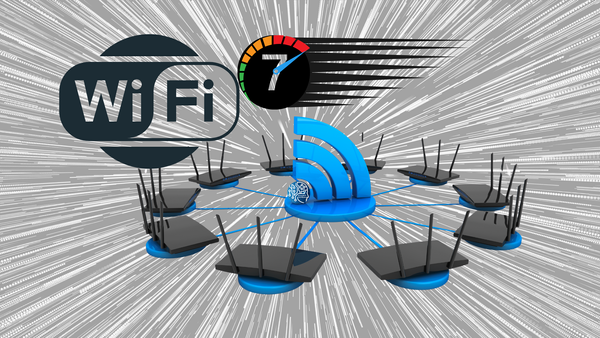5 Easy Cybersecurity Tips for Small Businesses

In today’s digital world of constantly being connected, securing your business data is critical. Cyber threats are rising at an alarming rate, cybercrime being the third largest economy behind the US and China, and they often target small businesses, which might not have the same defenses as larger companies. Many small business owners mistakenly think that strong cybersecurity is only for those with hefty budgets. The good news? You can protect your business effectively without breaking the bank. Here are five straightforward and effective tips that can help keep your valuable information secure.
- Educate Your Employees
Your employees are your first line of defense against cyber threats. A recent study found that 90% of data breaches are caused by human error. It’s essential to provide training on basic cybersecurity practices.
Teach your team about recognizing phishing or vague emails and suspicious links. In my experience, this has been the number one entry point where threats get triggered. For example, nearly 1 in 4 employees might click on a phishing link at least once. Regular workshops by your tech team can equip employees with powerful best-practice knowledge, making them less likely to fall for scams or invite threats into your sensitive data.
Encourage strong password practices. I am always preaching about proper password protocol to anyone and everyone. Using a simple acronym for passwords can help employees remember complex passwords. Even choosing a category or specific topic for the duration of the password lifecycle can help users easily remember their credentials. It can be anything like Cities, Ice Cream Flavours, Tree or flower varieties... the possibilities are endless. By combining this simplicity with proper password protocol of using letters, numbers, special characters and upper and lower case, strong memorable passwords are achieved. Empowering your employees means transforming them into a vital asset in your cybersecurity strategy.
- Use Strong Passwords and Multi-Factor Authentication (MFA)
Passwords might feel mundane, but they are critical for cybersecurity. According to statistics, over 80% of data breaches involve weak credentials. As I just mentioned above, encourage your employees to create unique passwords that mix upper and lower case letters, numbers, and symbols.
Implement a policy for routine password changes—every three months is an industry best practice.
Additionally, use Multi-Factor Authentication (MFA) with a matching code Authenticator (Like Google Authenticator) or Biometric Authenticators for an added layer of security. Avoid using SMS based one time codes as they can be easily compromised these days. MFA using code authenticators can reduce the risk of unauthorized access by up to 99.9%. Even if a password is compromised, MFA can safeguard a business' sensitive data.
By prioritizing these password practices, you significantly bolster your security without any hefty investments.
- Keep Software Up-to-Date
Outdated software serves as an open door for cybercriminals. These days, with so many rapidly changing threats, software updates are developed more routinely than ever before. Research suggests that 60% of data breaches involve known vulnerabilities that could be patched. Make updating software a routine standard procedure within your organization.
Ensure all software, from operating systems to security applications, are checked for updates regularly. Automate updates whenever possible to alleviate the burden on staff and ensure systems always have the latest security features. Testing these updates prior to roll-out will also save you from having needless headaches and extra work.
Stay proactive with software management; it’s a manageable yet vital way to shield your business from threats.

- Secure Your Network
Your network is the backbone of your digital environment. Begin by securing your Wi-Fi network with a strong password and utilizing WPA3 encryption, which is far more secure than its predecessors.
Creating a guest network is also wise. Clients and outside visitors should be able to have WiFi access while in our office but keep their access segregated from the internal infrastructure. This keeps your main network safe from potential threats introduced by visitors.
Invest in a Virtual Private Network (VPN) to encrypt your internet connection. Statistics show that a VPN can lower the risk of data leaks by up to 90%.
Also, consider reviewing your firewall options. A strong firewall can block various cyber threats before they infiltrate your systems. Investing in a business-class firewall device is essential to prevent unwanted access with the ability to monitor, track and block the allowed traffic for any threats.
- Regular Backups
Data loss can occur in various ways—accidental deletions, hardware failures, or even ransomware attacks. According to a recent report, 60% of small businesses close within six months of a cyber-attack. The best defense? Regular backups.
Establish a routine for backing up vital data. A combination of cloud storage solutions and external hard drives is always something I recommend and always store backups separately from your primary systems to reduce the risk of simultaneous breaches. Many solutions are quite budget friendly and highly worth the slight added expense to ensure the integrity and safety of your data.
Ensure to routinely conduct tests on your backup systems to ensure they're functioning correctly. This includes restoration tests along with backup tests. This preparation allows for quick data recovery, minimizing downtime during any crisis.

Final Thoughts
Cybersecurity is vital for businesses, no matter the size, and it doesn’t have to break the bank to ensure you have some solid security in place. By following these five insightful tips—educating your employees, using strong passwords and MFA, keeping software updated, securing your network, and regularly backing up data—you can establish a solid cybersecurity strategy for your small business that will be reliable.
Adhering to industry standards and best practices while implementing these suggested measures, not only protects your business from cyber threats but also allows you to focus on what you do best: growing your business. As your business grows, so will your cybersecurity needs so ensure your business has the right budget and security plan in place to ensure your business is always one step ahead.
In a recent podcast on Nightime, with Jordan Bonaparte/Curiouscast, features the Vice President of Security Solutions for Mastercard, Amisha Parikh, and Detective David Coffey of the Toronto Police Services Financial Crimes Unit, discussing the latest cybercrime trends, the impacts on individuals and small businesses, and the real-world Headline news of Canadian cybercrime cases. I highly urge everyone to listen to this highly informative podcast (see below) that stresses the importance of being aware of the constant threat to individuals and businesses.
Discussing the latest cybercrime trends, the impacts on individuals and small businesses, and the real-world Headline news of Canadian cybercrime cases.
As I say to all my clients, being connected online always brings many risks. Whether through business or personally, the steps you take to mitigate these risks makes all the difference and helps keep your data secure and far less likely to be a target. Don’t wait for a data breach to take action. Start today, and safeguard your business for a more secure future. Let me know in the comments what further steps you take to protect your small business from cyber threats. And, as always, feel free to reach out to us for any questions you have regarding your IT needs - big or small.





